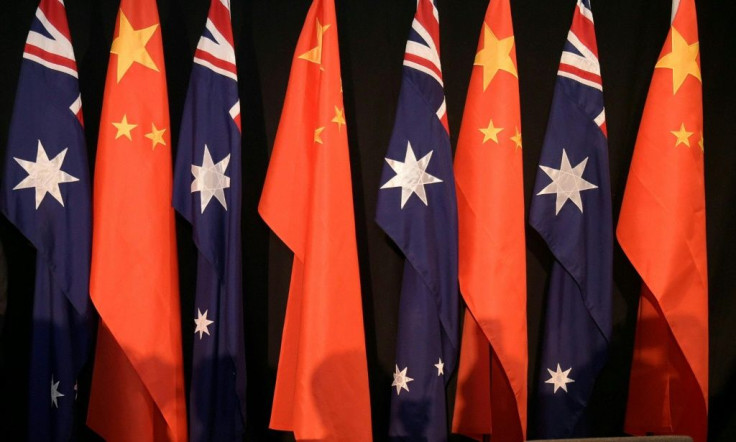Australia May Finally Get To Join Naval Exercise Malabar With India, US, Japan

KEY POINTS
- India-U.S. Malabar series of naval exercises date back to 1992
- Australia has wanted to rejoin the drills for some time but has faced resistance from India
- India now seems warm to the idea as concerns over China intensify
As the anxiety grows over what China might decide to do next in the South China Sea or the mountains of Tibet along India’s border, Australia figures to play a role joining India, the U.S., and Japan in joint naval exercises.
An earlier version of the quartet of democratic countries, known as the "Quad", was formed in 2007 when they participated in the second of two military exercises known as the Malabar exercise.
The India-U.S. Malabar series of naval exercises date back to 1992. They were suspended in 1998 after India conducted some nuclear tests but returned in 2002 and have since been an annual event. Originally held off the Malabar coast, the name stuck even though they are held in different locations.
China’s objections ended the original Quad group and because neither India nor Australia was willing to confront China, the Malabar reverted to a U.S.-India naval exercise. Japan joined the exercises permanently in 2015.
Australia has wanted to rejoin the Malabar drills for some time but has faced resistance from India. New Delhi had doubts about Australia's commitment after it pulled out of the 2008 version of the Quad under former Prime Minister Kevin Rudd.
India’s reluctance to welcome Australia into the Quad is decreasing as Sino–Indo relations are on the wane. Since the 1950s, India and China have had scuffles but have managed to remain cordial.
Recently, the COVID-19 pandemic along with China’s aggressive actions in the South China Sea and a series of escalating border disputes in the Himalaya mountain range is causing New Delhi to re-think its views toward China. Just last month a brawl in the Galwan Valley left 20 Indian soldiers dead.
Retired Captain DK Sharma, a former spokesman for the Indian Navy, told ABC that including Australia in Malabar would create a coalition of "like-minded navies, like-minded democracies" across the Indo-Pacific. He commented on how Chinese assertiveness against individual nations had pushed other countries closer together.
"[China] never expected that this kind of alliance can be stitched together. But they have shoved it down our throats … That is what's rattled them,” he said.
The U.S and Japan are "on board" for Australia to join the Quad. Indian media are reporting that the Narendra Modi Government has had a change of heart and will allow Australia to participate.
In January, Rajeswari Pillai Rajagopalan, the head of one of India’s largest think tanks, wrote in a commentary for the Diplomat, "If India finally agrees to invite Australia for the 2020 Malabar naval exercises, it will be a welcome break and would suggest the growing seriousness and synergy among four key Indo-Pacific powers: Australia, India, Japan, and the United States."
Australia would gain diplomatically and strategically as it also faces issues with China that must be resolved.
© Copyright IBTimes 2025. All rights reserved.





















